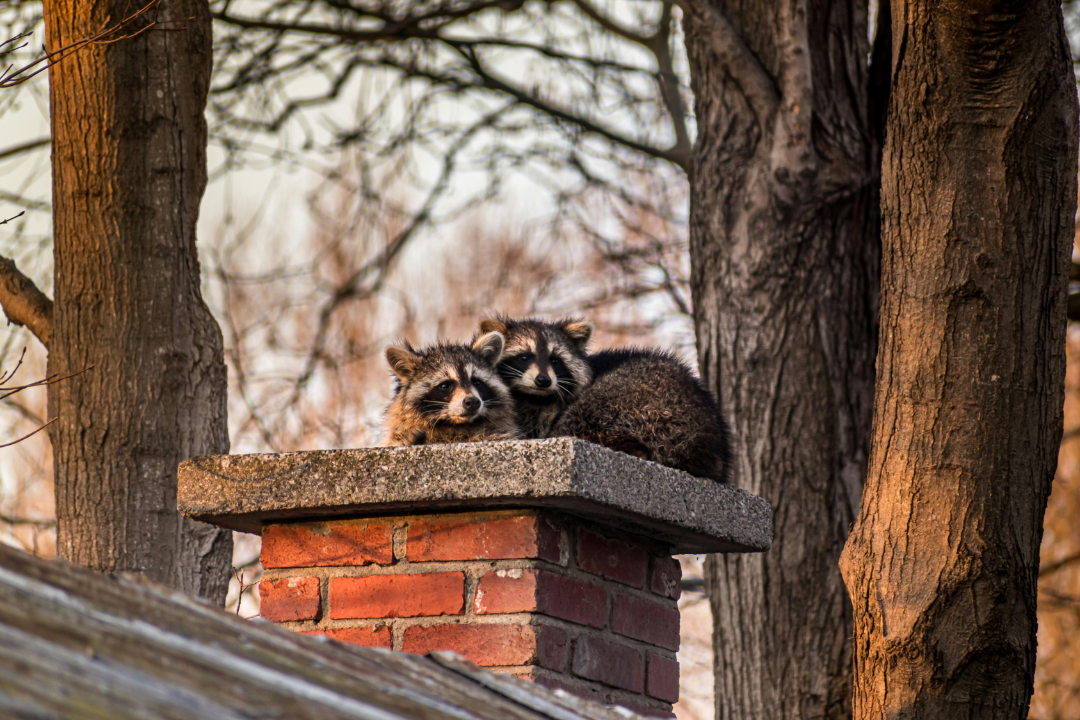
Raccoon Removal and Trapping
in Raleigh, North Carolina
Managing Raccoon Intrusions in Raleigh: Effective Removal Strategies
Understanding Raleigh's Raccoon Population
Raleigh's blend of urban development and natural green spaces creates an ideal environment for raccoons to thrive. These highly adaptable mammals have successfully integrated into the city's ecosystem, finding ample food sources in residential areas while utilizing tree corridors, greenways, and stream buffers for movement. With their distinctive masked faces and ringed tails, raccoons have become common residents throughout Wake County neighborhoods.
Why Raccoons Become Problematic for Homeowners
Raccoons typically seek shelter in homes during their breeding season, which peaks between January and March in North Carolina. Female raccoons actively search for protected, secure spaces to birth and raise their young – making your attic, chimney, or crawlspace particularly attractive. Their intelligence and dexterous paws allow them to manipulate latches, lift covers, and create entry points where structural vulnerabilities exist.
Identifying Raccoon Presence
Vigilant homeowners should watch for these telltale signs:
Heavy thumping or walking sounds in attics, especially during night hours
Distinctive chittering, growling, or shuffling noises
Damaged soffits, fascia boards, or roof vents
Large, fingerprint-like tracks around your property
Tipped-over garbage cans with scattered contents
Torn insulation and concentrated areas of feces in attics
Health and Property Concerns
Raccoon infestations present significant challenges beyond noise disturbances:
Structural damage to roofing, insulation, and ductwork
Contamination from urine and feces which may contain roundworm eggs
Potential transmission of rabies, leptospirosis, and other zoonotic diseases
Secondary insect infestations attracted to nesting materials
Extensive damage to gardens, lawns, and outdoor amenities
Professional Raccoon Management in Raleigh
For humane and effective raccoon control, wildlife professionals employ specialized techniques:
1. Comprehensive Property Assessment
Experts begin with thorough inspection, identifying all entry points, determining population size, and assessing whether young raccoons are present – a crucial factor affecting removal strategies.
2. Humane Trapping Approaches
When necessary, professionals utilize:
Heavy-duty cage traps with appropriate dimensions for adult raccoons
Strategic placement along established travel pathways
Effective baiting techniques using foods raccoons find irresistible
Regular monitoring to minimize stress to captured animals
Relocation protocols conforming to North Carolina wildlife regulations
3. Exclusion Methods
Rather than focusing solely on trapping, effective management includes:
Installation of one-way doors allowing raccoons to exit but not re-enter
Special considerations during baby season to prevent separating mothers from offspring
Securing potential entry points with raccoon-resistant materials
Implementing deterrents around common access areas
4. Remediation and Prevention
Complete services address aftermath concerns:
Safe removal of contaminated insulation and nesting materials
Sanitization of affected spaces to eliminate odors and pathogens
Structural repairs to damaged areas
Installation of preventative measures to discourage future intrusions
Seasonal Considerations in Raleigh
Timing significantly impacts raccoon management success:
Winter interventions require careful planning when babies may be present
Spring and summer approaches focus on preventing established patterns
Fall removal efforts prepare homes before winter denning season begins
Legal Framework for Raccoon Management
North Carolina wildlife regulations classify raccoons as regulated species with specific handling requirements. Professional services navigate these legal considerations while implementing effective solutions that protect both property and wildlife.
Selecting Qualified Wildlife Professionals
When choosing raccoon management services in Raleigh, prioritize:
Proper licensing and insurance coverage
Specialized wildlife handling training and experience
Transparent service explanations and pricing
Positive reviews from local homeowners
Comprehensive approaches that address immediate and long-term concerns
Written guarantees on workmanship and prevention measures
Preventing Future Raccoon Problems
Proactive homeowners can reduce attractants by:
Securing garbage in wildlife-resistant containers
Removing outdoor pet food after feeding times
Maintaining trees and shrubs away from rooflines
Installing chimney caps and roof vent covers
Addressing structural vulnerabilities during routine maintenance
By implementing professional wildlife management strategies and understanding raccoon behavior patterns, Raleigh residents can effectively address these challenging intruders while preserving the natural balance that makes the capital city's ecosystem unique.

